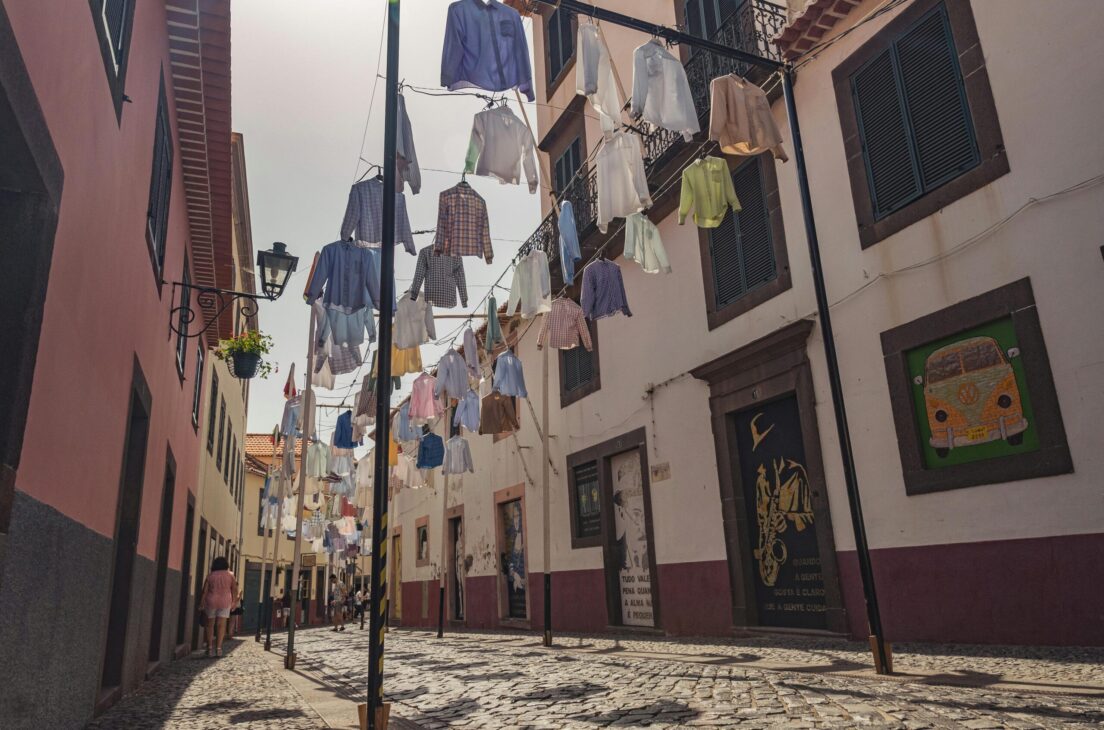I remember slipping out of my small guesthouse in northern Portugal just before dawn, nodding briefly to the proprietor who simply handed me a thermos of coffee without unnecessary conversation. The village was still dark as I made my way up the coastal path alone, finding a perfectly positioned rock overlooking the harbor. As the sky transformed from indigo to amber, I watched fishing boats appear as silhouettes against the brightening horizon. No one knew I was there. No one expected anything from me. Yet in this moment of solitary observation, I felt a profound connection to this place—the working harbor, the rhythm of a community I didn’t need to participate in to appreciate. That’s when I understood something essential about conscious travel: it’s not about inserting yourself into local stories, but rather witnessing them with respect and ensuring your presence supports rather than disrupts their continuation. My choice to stay in this village rather than at the resort on the hill meant my travel funds were preserving something authentic rather than encouraging its replacement.
Yet the most meaningful travel experiences often emerge when we slow down, pay attention, and make choices aligned with our values rather than external expectations or conventional itineraries.


Why Your Travel Choices Matter (More Than You Think)
You’ve likely encountered the term “conscious travel” mentioned alongside phrases like “sustainability” and “responsible tourism.” But this isn’t just another trend to follow or box to check—it’s a fundamental shift in how we engage with the world.
When you choose to travel consciously, you’re doing something countercultural in our consumption-obsessed society: you’re slowing down and paying attention. You’re acknowledging that your presence leaves imprints—on local economies, on cultural traditions, on fragile ecosystems, and ultimately, on your own inner landscape.
The conventional approaches to travel—collecting countries like trophies, treating destinations as backdrops for social media moments, racing through bucket lists—are depleting both our planet and our capacity for meaningful experience. Our world cannot sustain millions of people traveling mindlessly, and truthfully, our spirits can’t thrive on superficial experiences either.
Here’s the encouraging reality: every conscious choice you make creates ripples that extend far beyond your journey. Let me show you how.
The Ripple Effects of Your Conscious Choices
For Communities: Economic Dignity, Not Dependency
Where you spend your travel funds isn’t just a practical decision; it’s a powerful statement about what you value.
Choose Locally-Owned Accommodations
When you book a small, independently-run guesthouse instead of an international chain hotel:
- You direct money into local hands rather than corporate headquarters
- You support operations that often preserve traditional hospitality practices
- You help create employment that allows people to remain in their communities rather than migrating to overcrowded cities
During a stay at a small pensione in Tuscany, I observed how three siblings managed different aspects of their family business—one prepared breakfast using eggs from their own chickens, another tended the gardens, while the third handled administration. I later learned that revenue from guests helped them restore their grandmother’s historic olive press. This isn’t merely commerce; it’s the preservation of cultural heritage.
Seek Out Community-Based Experiences
When you choose tours and activities operated by local organizations:
- You ensure tourism benefits those who actually live there
- You access authentic knowledge rather than packaged performances
- You often support programs that reinvest in community needs like education

While traveling in Thailand, I participated in a cooking class operated by a women’s cooperative that directed a portion of proceeds to literacy programs in their village. The experience was enriching not only for the culinary knowledge gained but also for knowing my participation contributed to educational opportunities.
Practice Intentional Spending
Pay attention to where your travel budget flows:
- Seek out restaurants that source ingredients from local farmers
- Purchase souvenirs directly from artisans when possible
- Be willing to pay fair prices rather than aggressively bargaining
An artisan-made ceramic in Mexico might cost more than a mass-produced version from a tourist market, but the price difference often directly supports sustainable livelihoods and the continuation of traditional crafts.
For Cultures: Preservation, Not Extraction
Let’s consider something fundamental—how we engage with the living cultural heritage of the places we visit.
Approach Differences with Curiosity, Not Judgment
When encountering unfamiliar customs or perspectives:
- Ask questions with genuine interest rather than making assumptions
- Notice your internal reactions without immediately expressing them
- Remember that your “normal” is someone else’s “everyday reality”
During a ceremony in Indonesia, I experienced a concept of time that operated completely differently from my Western understanding. Rather than feeling frustrated by what seemed like delays, I quietly observed and later asked respectful questions about their temporal philosophy. The resulting conversation provided insights that changed my understanding of productivity and presence.
Seek Permission, Not Entitlement
When interacting with cultural practices and spaces:
- Always ask before photographing people or sacred sites
- Respect boundaries around certain rituals or locations
- Express gratitude for being included in cultural moments
Remember that individuals aren’t accessories for social media—they’re people with agency. Ask before photographing, accept refusal respectfully, and if permission is granted, show them the image and offer appropriate compensation when culturally appropriate.
Learn Key Phrases and Cultural Norms
Before arriving in a new place:
- Learn at least basic greetings in the local language
- Research appropriate dress for different settings
- Understand gesture etiquette to avoid unintentional offense
Even spending one evening learning a few Arabic phrases before visiting Morocco can transform interactions. Locals rarely expect fluency—they appreciate the respect demonstrated by making an effort.

For Ecosystems: Regeneration, Not Depletion
Our planet needs mindful choices now more than ever. The climate crisis isn’t a distant threat—it’s present, and travel decisions have significant environmental implications.
Consider Your Carbon Footprint
Make thoughtful transportation choices:
- Fly less frequently but stay longer when you do
- Choose direct flights when possible to reduce emissions
- Offset unavoidable flights through reputable programs
- Use public transportation, bicycles, or walking once at your destination
That weekend getaway to Paris might seem appealing, but consider saving those carbon emissions for a longer, more meaningful stay. This approach not only reduces environmental impact but also allows for deeper experience rather than superficial visits.
Choose Accommodations with Environmental Commitment
Look for places that demonstrate genuine ecological awareness:
- Research their waste management practices
- Note water conservation efforts, especially in drought-prone regions
- Support accommodations using renewable energy
- Seek out properties that protect or regenerate natural habitats
During a stay at an eco-lodge in Costa Rica, I observed comprehensive sustainability practices—rainwater harvesting, extensive composting, and native habitat restoration that had successfully reintroduced bird species absent for decades. While the shower pressure was modest compared to conventional hotels, the experience of watching wildlife in recovered habitat provided a more meaningful form of luxury.
Practice Personal Environmental Stewardship
Individual habits create significant collective impact:
- Bring your own refillable water bottle and coffee cup
- Pack biodegradable toiletries in reusable containers
- Decline daily towel and sheet changes
- Remove packaging from new purchases before your trip
With minimal preparation, you can avoid consuming dozens of single-use plastic items during your travels. This practice not only reduces your environmental footprint but also demonstrates sustainable alternatives to others.

A Life Recipe: The Conscious Arrival Practice
Here’s a practice worth considering—a ritual that can be performed upon arriving in any new place, particularly suited for those who prefer quiet observation over social interaction. This simple ceremony grounds you in conscious awareness and sets the tone for a more meaningful experience.
Ingredients:
- One local food item purchased from a small vendor
- A reusable water bottle filled locally
- A small notebook and pen
- 30 minutes of unscheduled time
- Your full, undivided attention
Method:
- Within your first day in a new place, step away from your accommodation and find a public space where locals gather
- Purchase a simple food item from a small vendor, using at least one phrase in the local language
- Find a quiet place to sit where you can observe daily life unfolding without intrusion
- Place your phone in airplane mode and stow it away
- Begin by taking five deep breaths, becoming aware of the unique scent of this new place
- Slowly enjoy your local food, noting every flavor and texture
- In your notebook, record:
- Three sounds unique to this location
- Three colors that dominate the landscape
- Three patterns or rhythms you observe in the environment
- Before leaving, identify one small way you can minimize your impact during your stay
- Take a moment to acknowledge the privilege of being in this place
The Emotional Experience: This practice accomplishes something significant—it transitions you from being a passive consumer of a destination to a mindful observer. It awakens your senses, grounds you in the present reality, and establishes an intention that will influence your entire stay. For those who appreciate solitude, it offers a way to connect deeply with a place without requiring social interaction.
Bringing Conscious Travel Home With You
The most powerful aspect of conscious travel isn’t what happens while you’re away—it’s how it transforms your everyday life upon return. The awareness cultivated during mindful journeys continues beyond the journey itself.
Share Stories, Not Just Photos
When telling others about your experiences:
- Focus on meaningful observations rather than just scenic highlights
- Represent the perspectives you encountered accurately
- Challenge stereotypes and oversimplifications about the places you’ve visited
- Describe how the experience changed your perspective rather than just what you saw
Rather than merely showing photos of a Peruvian landscape, share observations about the ecological knowledge embedded in local practices, or how certain encounters prompted you to reconsider assumptions. The transformation matters as much as the destination.
Integrate New Awareness Into Daily Choices
Allow your travels to inform your ongoing decisions:
- Apply newfound environmental consciousness to home practices
- Seek out and support businesses connected to regions you’ve visited
- Continue learning about the cultures and ecosystems you encountered
- Consider how travel insights might transform your consumption patterns
After witnessing water conservation practices in drought-affected regions, everyday habits like long showers often appear different—less as entitlements and more as privileges. This awareness can extend to how we perceive all resources.
Maintain Expanded Perception
Preserve the heightened awareness cultivated while traveling:
- Observe your own community with the same attentiveness you bring to new places
- Notice beauty in ordinary moments
- Continue approaching differences with openness rather than judgment
- Remember that conscious living, like conscious travel, requires ongoing practice
The quality of attention given to a dramatic sunset in an exotic location can be directed toward the evening sky visible from your own window. The patience exercised when navigating unfamiliar surroundings can be applied to daily routines. The capacity for wonder exists everywhere when we choose to maintain it.

The Courage to Travel Differently
Choosing conscious travel isn’t always the easiest path. It might mean bypassing certain famous attractions that exploit animals or local people. It might mean allocating more budget for environmentally responsible options. It definitely requires resisting the cultural pressure to maximize quantity of experiences at the expense of depth.
Yet the most meaningful travel experiences often emerge when we slow down, pay attention, and make choices aligned with our values rather than external expectations or conventional itineraries.
The world has enough tourists moving rapidly through bucket lists. What it needs are travelers who arrive with awareness, tread lightly, spend responsibly, and contribute positively to the places they visit. It needs individuals willing to trade quantity for quality, collection for connection.
When planning your next journey, consider not just where you want to go, but how you want to engage when you’re there. Reflect on what kind of impact you wish to have, what understanding you hope to gain, and how you might honor the places that nourish your curiosity.
Travel isn’t merely about seeing the world—it’s about seeing yourself more clearly through your relationship with the world. When approached consciously, what you discover extends far beyond landscapes and cuisine. You develop a deeper understanding of your place in our interconnected planet, your capacity to nurture or deplete it, and your ability to be transformed through thoughtful engagement.
The journey toward more conscious travel begins with intention—what will yours be?
© 2025 Ether & Opulence™ | Life Recipes for Conscious Luxury







